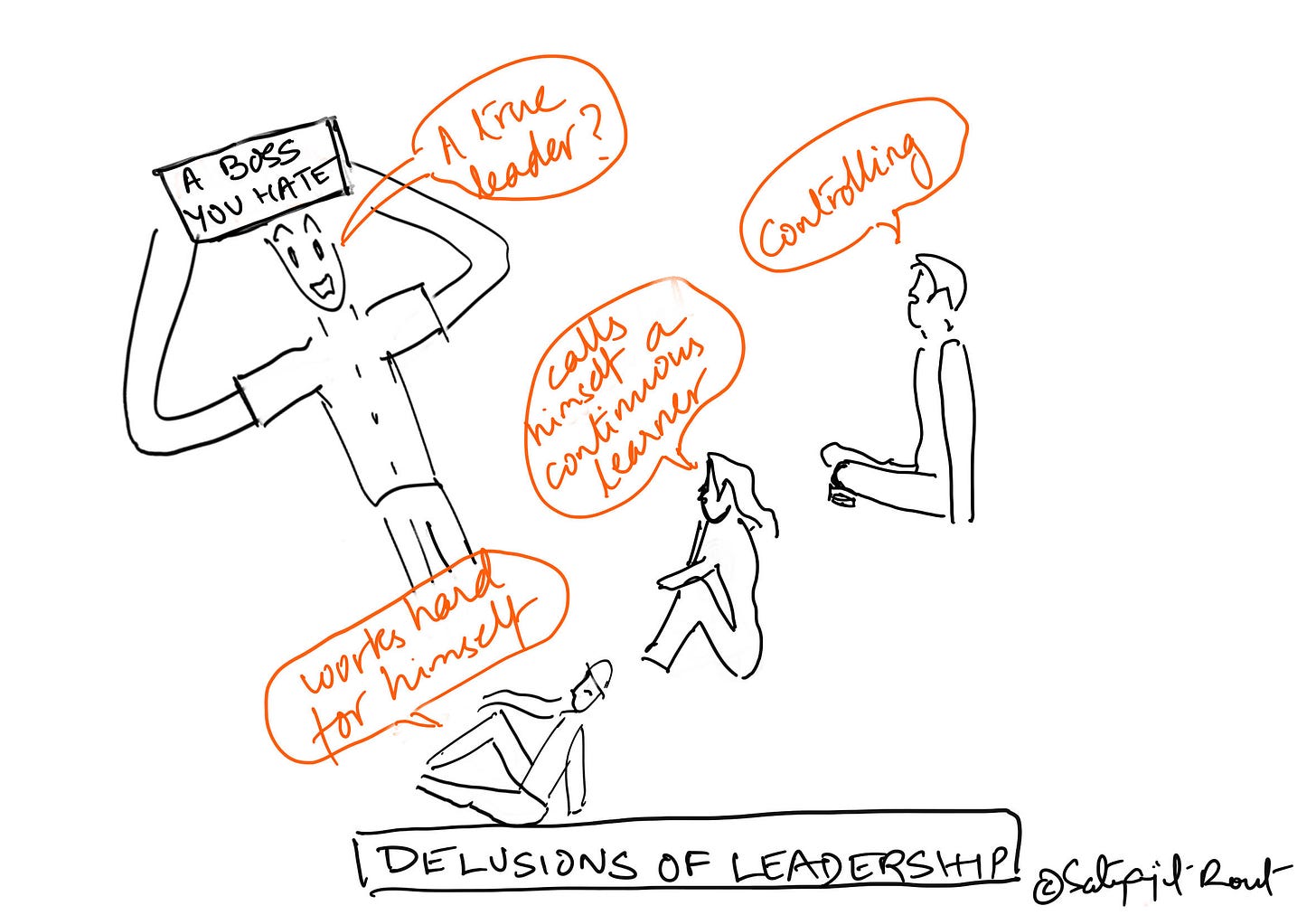👋Hi friends. This last weekend I launched a newsletter, my second one. This one is called Levels of the Game and scratches my long-time itch of writing long-form non-fiction. I have published my first piece, a profile of restaurateur Will Guidara who took Eleven Madison Park in New York City to the pinnacle of the restaurant world in a little over a decade. You can read the piece here.
As of this moment, only my wife and four friends know about this. I would hate to add you all just because I have your email. I’m hoping that some of you will find it interesting and comment and subscribe and spread the word. Your recommendation is the most powerful way for me to connect with new readers. Thank you!
On to today’s issue…
A leader’s second job
Every leader/exec has two jobs. Working in the org and working on the org.
The first is the set of responsibilities for which they were hired. It is what their JD says. The second is a product of their position. Being in the upper rungs, they’re privy to much more than those below. They can see so many more interconnections, so many more broken linkages. They carry with them so much more positional insight. It thus becomes their job, whether they think they have signed up for it or not, to use all that perspective and power to design a better org. Working on the org.
In reality, too, most leaders/execs tend to feel the need to do two jobs. Their job and this other job of proving to all who matter how good a job they're doing. Influencing peers, managing up, et cetera.
If you’re a leader/exec and you find yourself putting in 80-hour weeks doing two jobs, ask yourself: What is this second job I’m doing?
The one-sidedness in the mantra of continuous learning
Far too many leaders claim continuous learning as their motto. Unfortunately, too many of them have such happy illusions about themselves that they don’t know what they don’t know and hence don’t believe they need to upskill.
Such leaders carry a mirror in their pockets that they pull out for everyone around them. They move around, from meeting to meeting, offering solutions to the problems that they have created. But they tend to not notice the last part.
If you’re someone who has been rated and reviewed harshly by a leader without a reciprocal offer, you probably are thinking of double standards. I feel you. If it helps to know, your problem isn’t bosses who are Machiavellian. They simply don’t know or have forgotten that they aren’t very good at certain things; if somehow they could see themselves, they would be much better.
Do you want to be in control or…?
In any human endeavor, there's a difference between being in control of the outcome and exercising control over an unpredictable outcome.
Mihalyi Csikszentmihalyi in his masterpiece Flow talks about rock climbers and their relationship with control. He says that climbers enjoy pitting themselves against a bare rock face even though it carries a risk. I think his point travels well to leadership.
Your report has to send out a status update to your boss who’s a fusspot about these things. You want to make sure it captures all key points and is structured right, so you ask the report to run it by you before sending it. The outcome is certain if you intervene; there is no doubt. That is being in control of the outcome.
You have recently moved into a new organization as the head of a business unit. Your boss expects you to take charge in the new role quickly but is vague about expectations. You navigate this ambiguity by speaking with old timers in the org, triangulating the top priorities, and making a list of the toughest decisions on your plate. You do all this and make a presentation to your boss with your plan at the end of the first 90 days. That is exercising control over a doubtful outcome. Your efforts are directed at turning something uncertain (your boss’s approval of your plan) in your favor.
Being in control is a state of mind. You have a feeling of control. It tends to happen when you have authority (rank, designation). You can use it to be in control. Being in control feels safe.
Exercising control is a process you put yourself through. You choose to put your skills to test against a particular challenge that means something to you. Exercising control feels challenging, and hence is more enjoyable.
You come home after work, throw off your shoes, and sigh loudly. Your spouse asks, Tough day, again? To which you say: In this project no one can take a single decision without me. If I’m not around, things break. I’ve to be in control.
Why was your day tough? Because you told people what to do? Telling people what to do doesn’t improve your skills. It only leaves you drained at the end of the day.
Exercising a skill comes at you the other way. It is effortful while you’re at it but leaves you energized when your efforts turn a doubtful if to a clear yes. You’ve learned something, and you’ve learned something about yourself.
👋Hi, I’m Satyajit and thank you for your time. I learn from the best with the goal of unpacking lessons that help make decisions for a better career and a better life.




